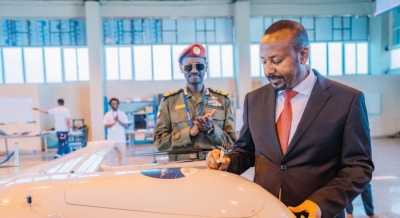South Africa will hold its general elections on May 29, 2024, at a time when the ANC is worn out by its three decades in power. To dethrone it, the opposition bases its entire campaign on the failures of Mandela's historic party.
Nqabayomzi Kwankwa, of the United Democratic Movement (UDM), like the other opposition parties, does not lack arguments to criticize the ruling party. "The ANC has not managed in 30 years what other countries have done in 20 with fewer means," he hammers while commenting on the famous SONA which in South Africa refers to the "State of the Nation Address," an annual speech delivered by the South African President in a joint parliamentary session.
To counter the opposition, the South African government recently introduced a new version of the electoral bill, some provisions of which may deprive opposition parties of the expected state funding. This new text, which will be examined on Tuesday by the South African National Assembly, changes the formula according to which political parties represented in the government receive state funding, giving the President the prerogative to determine the threshold of donations to parties.
Presented to Parliament last December, the bill also stipulates that independent candidates must declare their sources of funding. The leader of the parliamentary group of the Inkata Freedom Party (IFP), Narend Sing, has stated that there will undoubtedly be legal action if the bill is adopted, which will eventually impact the upcoming elections.
For his part, Nqabayomzi Kwankwa, of the United Democratic Movement (UDM), emphasized that if the ruling African National Congress (ANC) is not willing to hear various opinions on the matter, he is ready to take the issue to court.
The general elections are thus shaping up to be heated in South Africa, especially as they could put an end to the long hegemony of the ANC, the historic party that has led the country since the first democratic elections in 1994.
On the eve of the general elections, several polls conducted have shown that the popularity of the ANC is in free fall, pointing to the electricity crisis, the cost of living, endemic unemployment, and corruption as the most important factors casting a shadow over the country's historic party's chances of retaining power.
The last word will belong to the voters registered on the electoral rolls (over 27 million) who are called to go to the polls on May 29 to renew their Parliament, which will in turn designate the next head of state."











